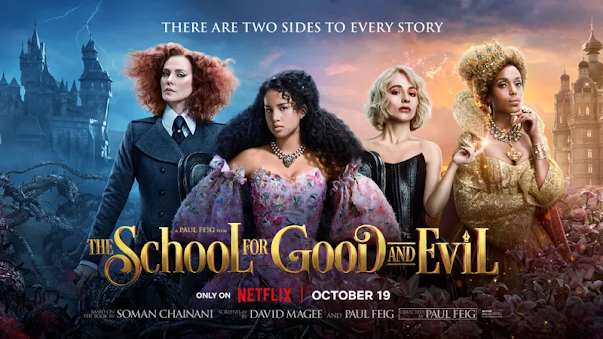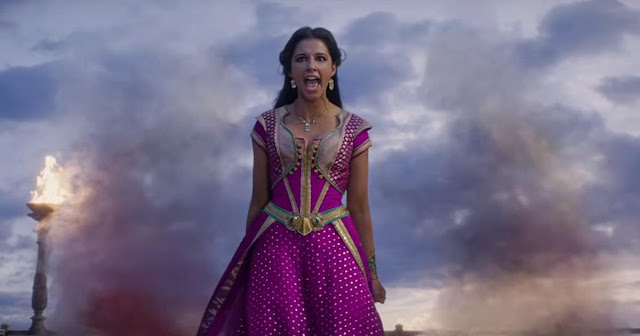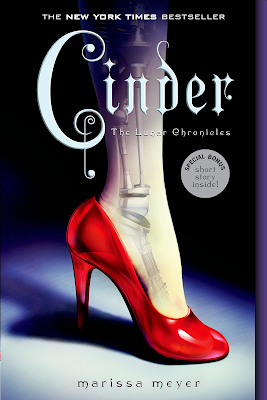Rapunzel Reveals There Is More in You in the Tangled Finale
"I'm not one to walk away from a fight when my friends are in danger, no matter what the odds. Just something I picked up from Rapunzel."Hell hath no fury like a woman scorned is a theme that was heavily encoded into the storytelling DNA of Plus Est en Vous, the series finale of Rapunzel's Tangled Adventure. The show formerly known as Tangled: The Series reached its ultimate conclusion today, neatly tying up loose ends to make way for the "Tangled Ever After" short, where we see Rapunzel and Eugene tie the knot at last. All in all, Plus Est en Vous was a mediocre finale for such a strong series, but that was primarily due to how the third season was dragged out. In general, I find that shows tend to lose their traction after the second season, which is why many of my favorite shows, such as Princess Gwenevere and the Jewel Riders, ran for two seasons or less. Destinies Collide, the season two finale of Tangled, was the pinnacle of suspense and emotional storytelling within the series. It ended on such a powerful cliffhanger that nothing else even stood a chance at living up to the figurative punch in the gut that Cassandra's betrayal impacted on fans everywhere.
The three songs in Plus Est en Vous were all sung by Rapunzel, which I feel was another mistake. Mandy Moore has the voice of an angel, and I adore her acting and singing alike. Yet, all of the songs written for Rapunzel in both the Tangled movie and series have a lack of depth and emotion to them because Rapunzel is such an upbeat character that her songs don't bring out her inner turmoil in the same way that Cassandra and Varian's do. Cassandra was given all of the best songs in the series, hands down, so it's a real shame she didn't go out with one last hurrah. None of the other musical numbers can even come close to the intensity of "Waiting in the Wings" or "Crossing the Line." Even the ensemble number "Through It All" felt like a bland and watered-down imitation of "Ready As I'll Ever Be" from the season one finale due in part to the lack of Eden Espinosa's powerful vocals as Cassandra. A final love duet between Eugene and Rapunzel would have also been a welcome addition to the series finale. Instead, we are left with only the heartbreaking memories of "If I Could Take That Moment Back" from the season two premiere Beyond the Corona Walls.
One of my favorite things about the Tangled series were the many throwbacks to the original 2010 film. There was a visual or audio reference to the classic feature in almost every episode, and the finale was no exception. This is something that other Disney animated series rarely attempted. The Little Mermaid series had a cameo of Prince Eric in a few episodes, but it never recreated animation or dialogue directly from the movie itself. The Tangled series was an homage to the original film that also improved upon its shortcomings. Back in 2010, the title of the movie was changed from Rapunzel to Tangled for blatantly sexist reasons. After the mediocre box office revenue from The Princess and the Frog in 2009, Disney thought that if they tried to market the movie toward boys by changing the title and commercials to make it look like Flynn Rider was the protagonist instead of the deuteragonist, they could double their profits. Times have changed a lot since Tangled was released, and now Hollywood is devoted to promoting strong and independent women, sometimes to a fault.
In a post-Frozen world where relationships between women trump heteronormative romantic relationships, the concept of being "tangled" needed to be reinvented for the series while still honoring the original. That was where Cassandra came in. The original Tangled portrayed the sweet and naive Rapunzel crossing paths with the morally questionable Flynn Rider, who believed he could never be anything more than a lonely rogue. By the time Tangled: The Series began, Rapunzel had already reformed Flynn Rider into Eugene Fitzherbert, a person with a real home and real relationships. That's why they needed Cassandra to become the new Flynn Rider. She crossed paths with Rapunzel when she was selected as her lady-in-waiting in the tie-in novel Rapunzel and the Lost Lagoon but lost her way at the end of the second season, Destinies Collide. Cassandra spent most of the third season floundering around to determine what she was meant to do with her life until her entanglement with Rapunzel ultimately had the same effect on her as it did with Eugene. Like the movie, the series also went through a name change, except that this time, it was to put Rapunzel's name back into the title, solidifying its themes of female empowerment.
Plus Est en Vous brings everything from Tangled, Rapunzel's Tangled Adventure, and the "Tangled Ever After" short full circle, and in the end, that was really all it needed to do. We already had plenty of emotional torment between Varian and Cassandra's various betrayals and their fantastic "Nothing Left to Lose" duet from Cassandra's Revenge that explored the duality between the two original characters from the series. Even though I had my issues with the third season, I am incredibly grateful that this show exists. It was ground-breaking in terms of the way it explored the complex relationships between women and how their ambitions sometimes clash with their inherent desire to be compassionate toward others. I sincerely hope that little girls will see this show and learn to be careful who they trust as that is a lesson that I was in dire need of when I was younger and didn't have a Tangled series to teach me. It also brought us a Disney character who struggles between the light and darkness, something that until now had only been explored in the Kingdom Hearts series. Cassandra gave many princess fans who felt they don't meet the Disney cookie-cutter standards of morality someone to connect with and showed us all that we have more to give, regardless of what happened in our past.













Comments